Comparing Traditional & Flexible Jobs in Manufacturing
MyWorkChoice compared recruitment outcomes for two U.S. manufacturers: one offering traditional employment Vs. GE Appliances that offers flexible job options.
The findings highlighted significant advantages of flexible jobs in the following ways:
- Flexibility is Your Hiring Advantage
- Increase Your Employee Retention & Tenure
- Meet Your Headcount with Automated Backfill Technology™️

The Differences Between Traditional & Flexible Jobs
| Flexible Jobs | Traditional Jobs |
|---|---|
| Entry level Assembly line worker with no experience. $15/per hour | Temp to hire. Entry-level Assembly line worker with no experience. $17/per hour. |
| Must commit to minimum hours per week. (32 for Full-Time / 16 for Part-Time) | Workers must commit to 40 hours per week plus mandated overtime. |
| Ability to take time off as-needed. Termination if worker drops an excessive number of shifts, or is repeatedly tardy. | Only 4 absences allowed in first six months (for any reason). |
| Workers allowed to choose from 10-hour or 5-hour shifts. | Shifts are only offered for 8.5-hours or 12-hour increments. |
| Workers can volunteer for overtime, if in good standing. | Termination if employee doesn’t work mandatory overtime. |
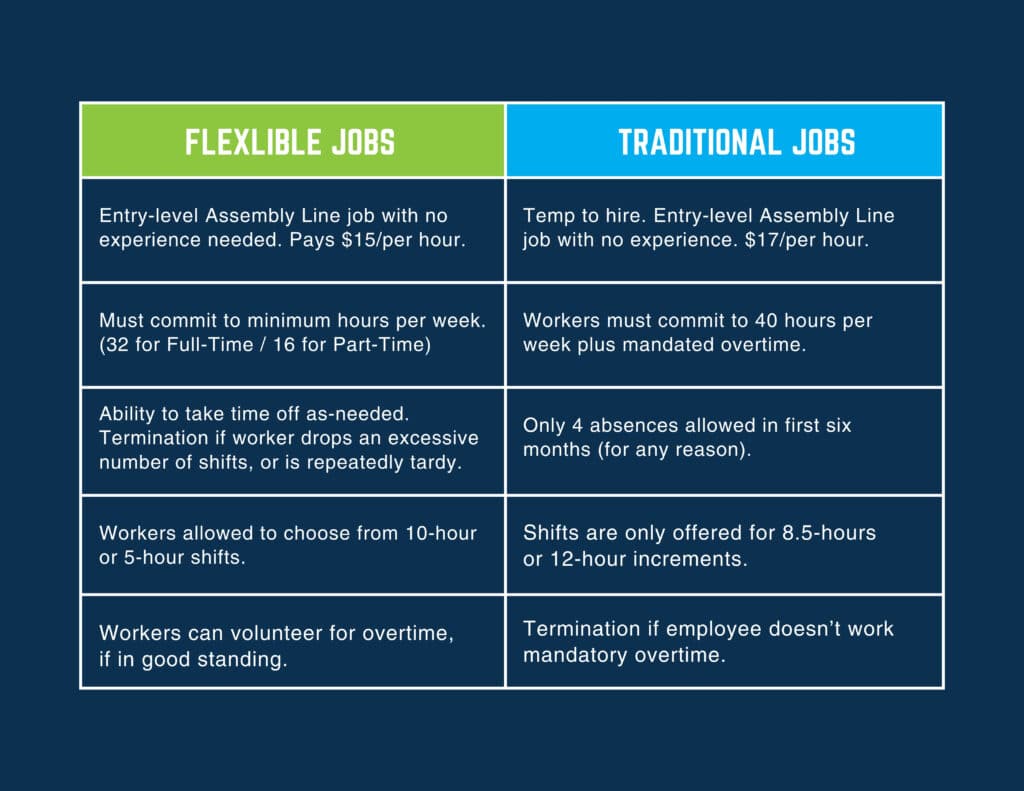
MyWorkChoice Recruiting Success
In a competitive hiring market, MyWorkChoice’s recruitment for two manufacturers revealed that flexible jobs significantly outperform traditional ones in attracting Despite offering lower pay rates, flexible job positions at GE Appliances resulted in a 106% higher rate of new hires compared to traditional temp-to-hire positions.
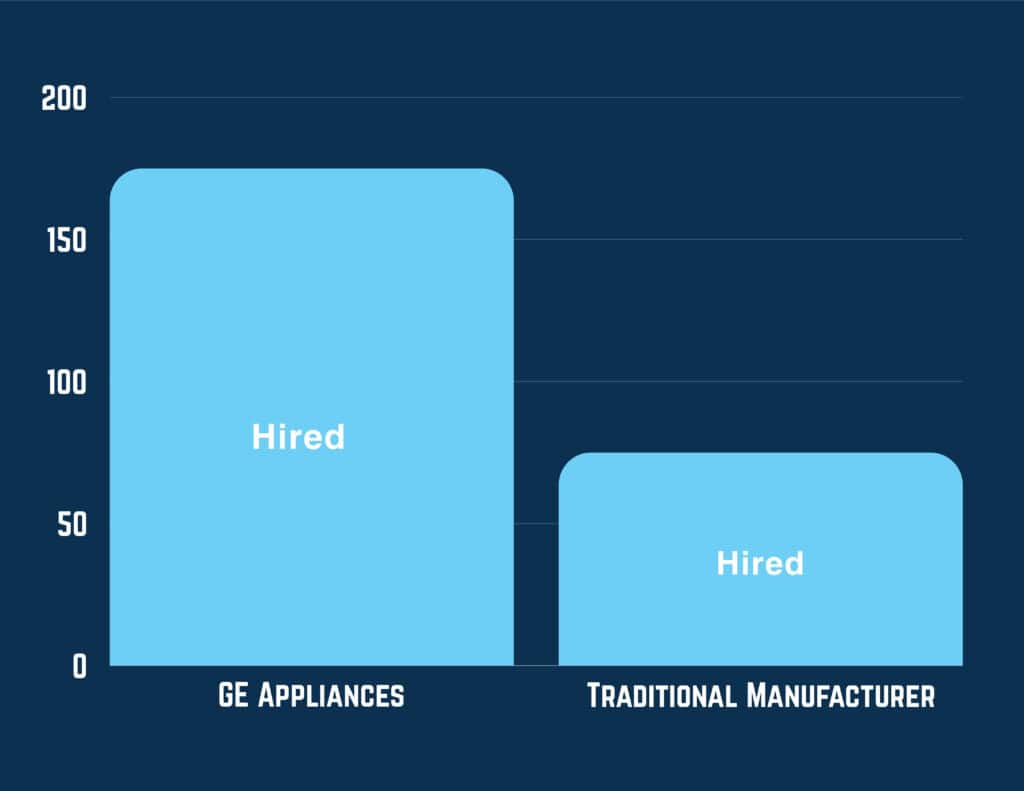

Flexible Jobs In Manufacturing
- Shift Choices
- Drop & Swap Shifts
- Voluntary Overtime

What Workers Say
“I love that I can work a full week, but if I need to miss a day for my kids appointments or games i can without being punished.”
Sydney
Traditional Jobs Lead to Higher Turnover
After recruiting workers for traditional roles, MyWorkChoice encountered a different challenge: Retention. The reality of maintaining a stable workforce in these roles quickly became apparent:
High Turnover:
A 488% turnover rate is a revolving door of employment, with 20 full-time workers turning over five times in only three months.
Attendance Issues:
Driving 66% of all departures, rigid attendance policies and point systems push workers out faster than they can be hired.
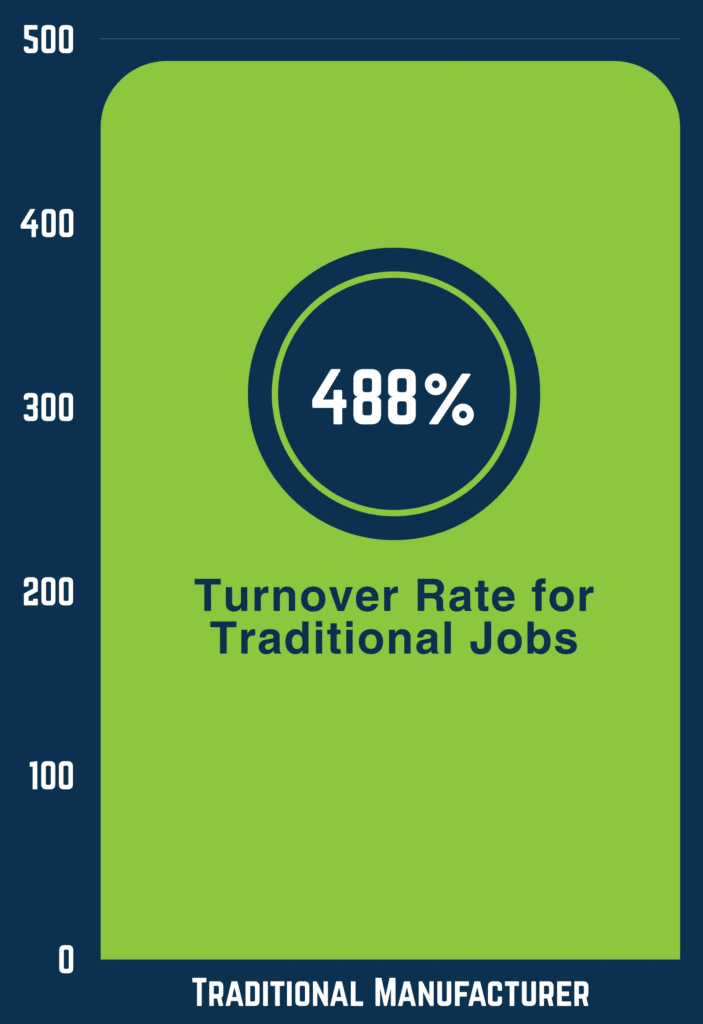
Flexible Jobs Lead to Improved Retention
Flexible jobs at GE Appliances are proving to be a key factor in longer employee tenure since MyWorkChoice was introduced to the community.
Typical temp hires last an average of six weeks, however over 70% of workers with flexibility in their schedule last over a year.
Flexibility isn’t just a nice-to-have; it’s a strategic way to keep a workforce.
This approach has turned flexibility from a simple benefit into a key strategy for building a dedicated and experienced team that lasts.
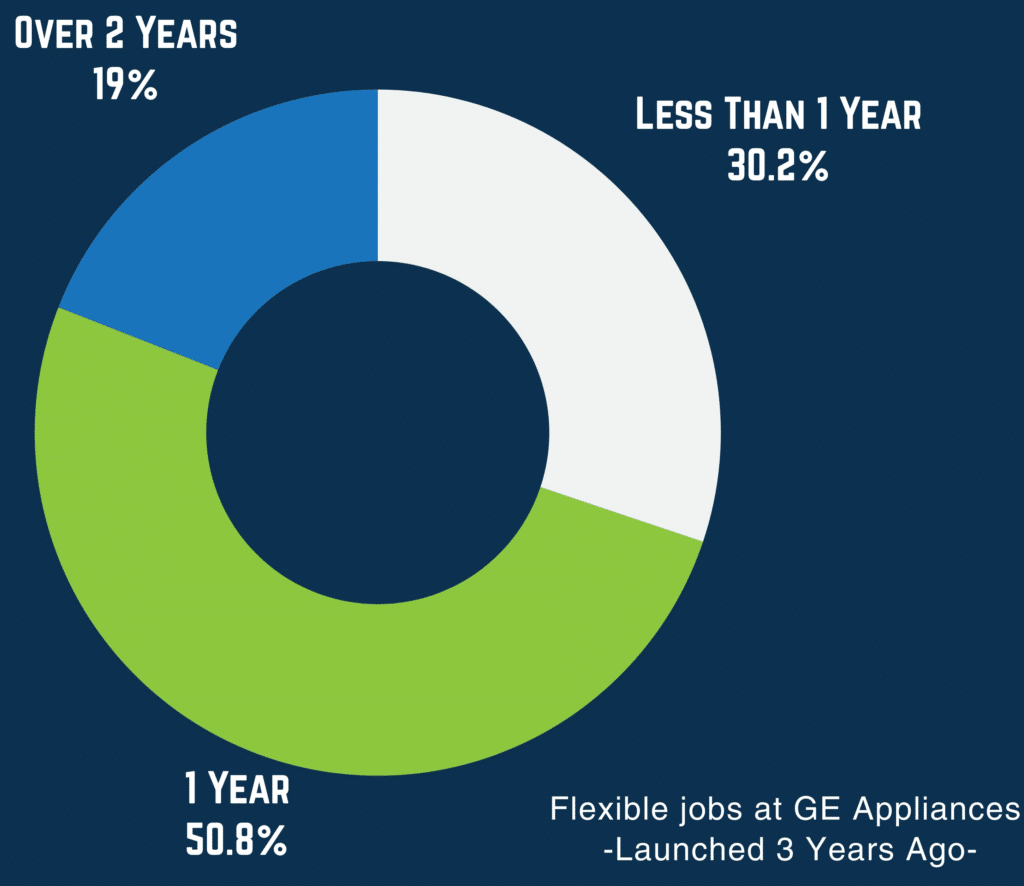
A New More Flexible Workforce
In comparing GE Appliances’ flexible work arrangements with traditional manufacturing jobs, we found that workers with flexible schedules worked more hours weekly than those in roles with mandatory weekend overtime and fixed schedules. Additionally, our part-time workers effectively covered shifts for full-timers who dropped a shift, ensuring GE Appliances met their headcount needs.
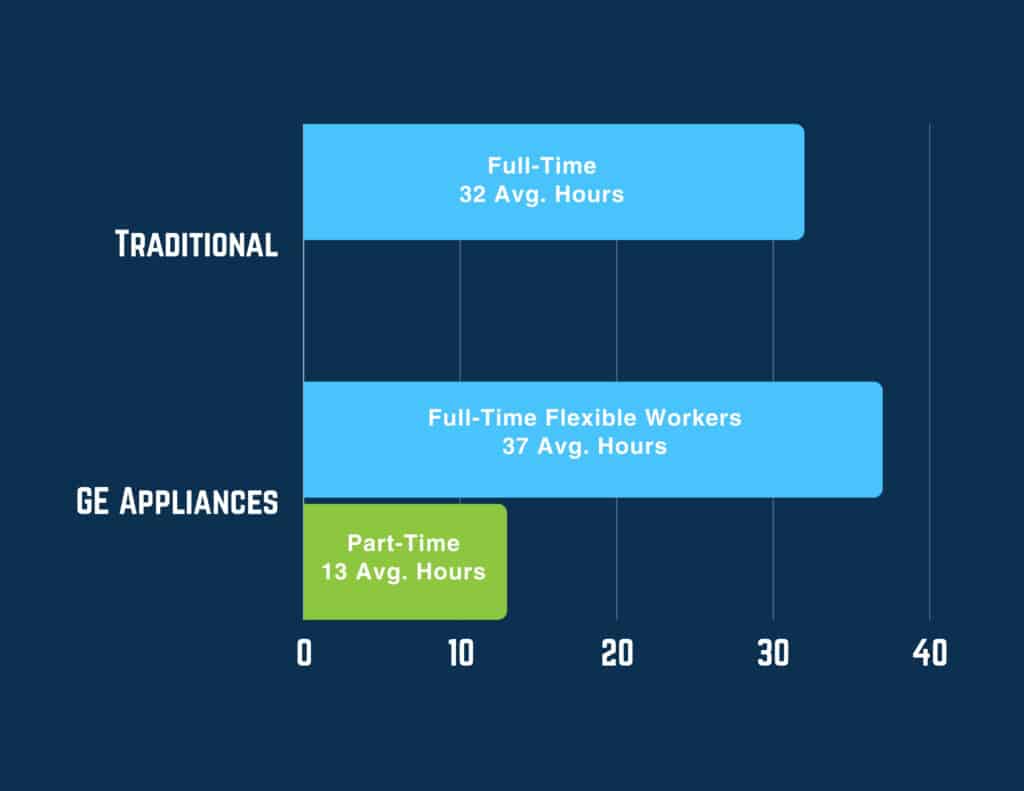

MYTH: Workers With Flexibility Work Less
Workers at GE Appliances show that flexible schedules don’t only work for part-time employment; they average full-time hours.
This debunks the myth that flexible jobs equate to part-time workers.
Comparing Showup Rates of Flexible Vs Traditional Workers
At GE Appliances, offering workers schedule flexibility led to an average show-up rate of 109%, contributing to stable operations through consistent headcount each week.
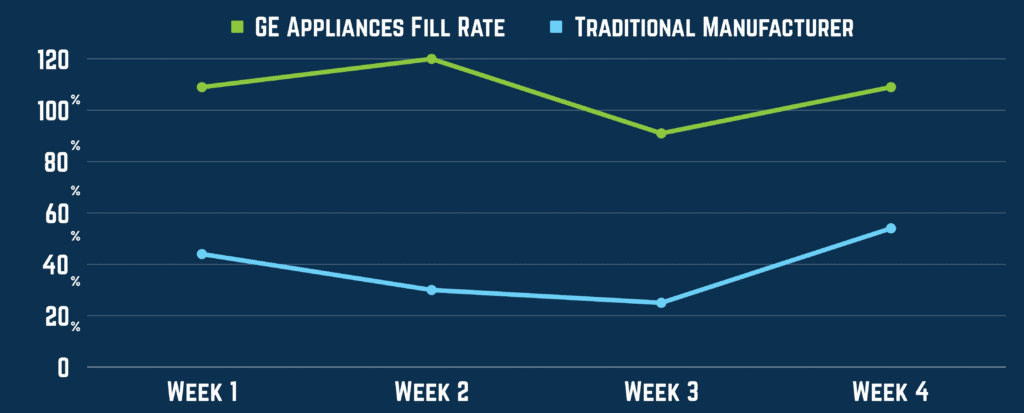
In contrast, the traditional manufacturing site, with strict attendance requirements and mandatory overtime, struggled to maintain the headcount they need.
Flexibility Brings Diversity to Manufacturing
GE Appliances’ flexible jobs stood out in the job market and brought in workers from diverse backgrounds like stay-at-home parents, college students, and semi-retirees.
*Gen Z and Millenials embrace flexible schedules and technology.

Women in Manufacturing
Addressing the gender gap in manufacturing requires rethinking job structures.
MyWorkChoice is leading the way, with a workforce that is 55% female.
Jobs with flexibility attract more working mothers who need balance between their careers and peronal lives.
Flexible Jobs Setting New Standards
Flexible jobs are at the forefront of transforming the manufacturing industry and have led to significant benefits across the board:
- Recruitment:
Flexible options have made these positions more attractive, drawing in a wider pool of candidates.
- Turnover:
By offering better work-life balance, GE Appliances has seen a massive decrease in employee turnover.
- Retention:
Employees are more satisfied and feel a stronger sense of loyalty, thanks to a work environment that respects their personal needs.
It’s a clear indicator that flexibility is key to the future of manufacturing, fostering a more engaged, dedicated, and diverse workforce.

“Those who have a creative, innovative approach to hiring and retaining associates will win.
Those that continue with the same mindset will struggle.”
Bill Good, VP of Supply Chain at GE Appliances

